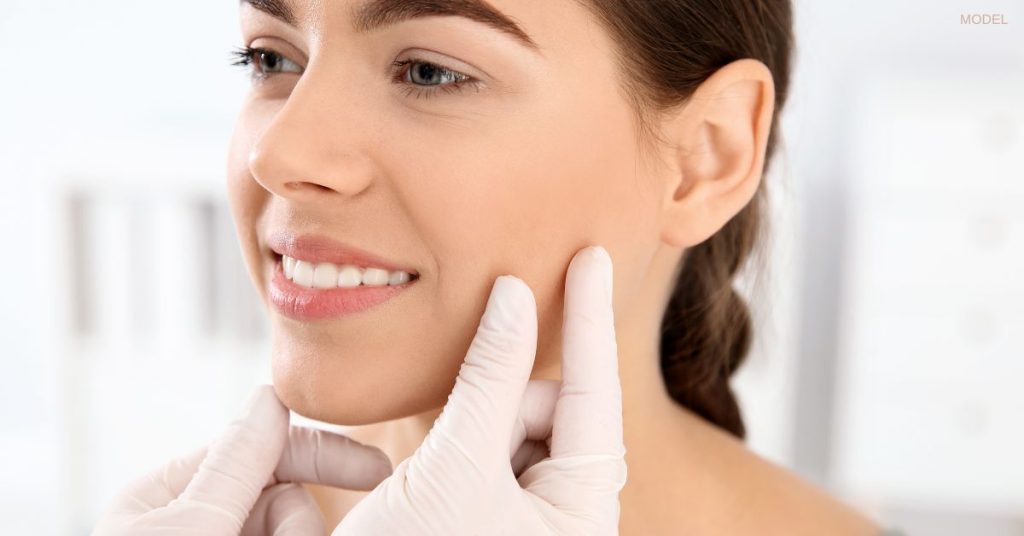Microneedling is one of the most popular skin rejuvenation treatments we offer, whether your goal is to smooth rough texture, minimize the appearance of acne scars, or reduce fine lines. Dermatologists have performed microneedling for decades, but social media influencers have recently enhanced the minimally invasive treatment’s popularity.
Advances in microneedling technology provide patients with multiple options, including microneedling combined with radiofrequency (RF) energy. At the Dallas Center for Dermatology & Aesthetics, we offer different treatment choices to ensure you get the microneedling procedure best suited for your skin concerns.
In this blog post, we’ll answer some of the most common questions people have about this procedure to help you decide if microneedling is right for you.
Does Microneedling Hurt?
The level of discomfort experienced during microneedling can vary from person to person. Microneedling involves puncturing the skin with tiny needles, so we apply numbing cream before the treatment to minimize discomfort. Having said that, each person’s pain threshold is different, and what one person describes as mildly uncomfortable, another may consider painless. Any discomfort associated with microneedling is manageable and brief.
What Is RF Microneedling?
Traditional microneedling creates tiny punctures in the skin using micro-needles, stimulating the skin’s healing process and triggering collagen production. This reaction helps with skin tightening and improvement of superficial appearance. Combining heat generated by radiofrequency energy enhances the production of collagen and tightens tissue in the skin’s deeper layers. We offer 2 types of RF microneedling: Scarlet SRF and Agnes Precision RF.
Is Microneedling an Effective Treatment for Acne Scars?
Reducing the appearance of post-acne scarring is a common goal for many of our patients. Microneedling offers an effective solution backed by clinical research. Our board-certified dermatologists may recommend combining microneedling with laser skin resurfacing procedures for the best results.
How Long Does Microneedling Last?
Microneedling produces long-lasting changes to the skin’s texture and appearance. How long your results last depends on several factors, including your skin type, the condition you want to treat, your age, and if you follow a regular skincare routine that includes healthy skin habits such as avoiding excessive sun exposure. It can take a few weeks or months to notice the results of your initial microneedling treatment, and follow-up appointments can help extend how long your results last.
How Often Do You Need Microneedling Treatments?
The frequency of microneedling treatment varies based on individual skin concerns and goals. We may recommend a series of microneedling treatments spaced about 4 to 6 weeks apart. Our dermatologists tailor treatment plans to address specific skin conditions.
How Long Does Microneedling Take To Heal?
Microneedling requires only minimal downtime. The time needed for the skin to heal varies depending on the depth of the treatment and individual skin sensitivity. After the procedure, it’s common to experience redness, swelling, and mild discomfort, similar to a sunburn. These side effects typically subside within a few days, with most people fully recovering within a week. Following our post-treatment care instructions helps the healing process. These include avoiding sun exposure, using gentle skincare products, and refraining from activities that may irritate the skin.
Can Microneedling Cause Scarring?
Microneedling treatments performed by qualified providers, whether a board-certified dermatologist, physician assistant, or licensed aesthetician, rarely result in unwanted scarring. The most common side effects are redness, swelling, and tenderness, which typically resolve within a week. You can minimize the risks of more severe complications by choosing an experienced and trained practitioner.
If you have additional questions about microneedling and want to discuss your skin concerns with one of our dermatologists, please request a consultation using the online form or call us at
(214) 631-7546 to schedule an appointment.


Leave a Reply